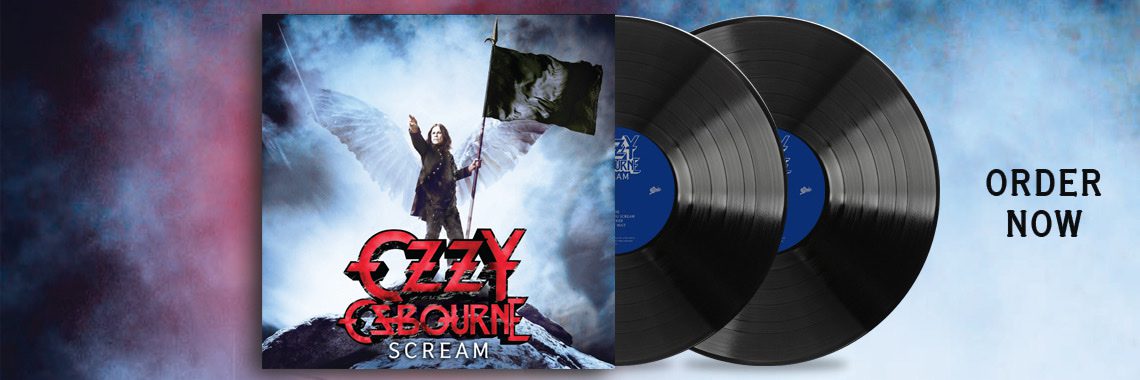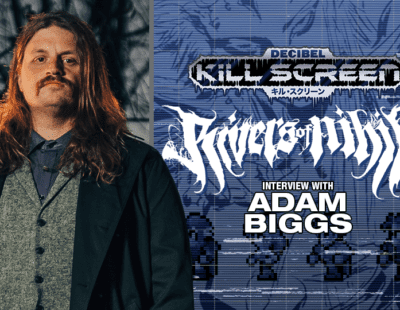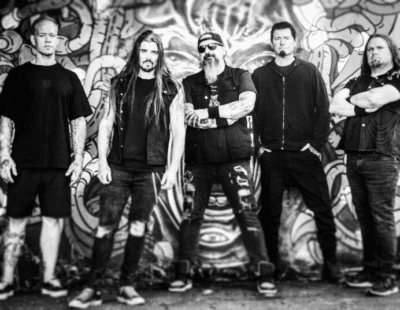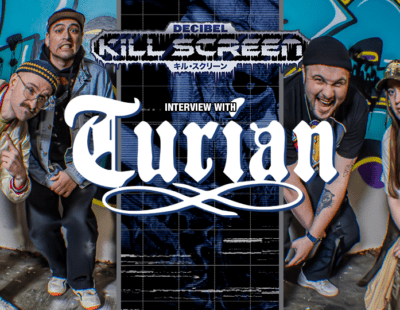
Earlier this month, Neurosis took up residency at San Francisco’s Regency Ballroom for an epic weekend of shows to commemorate their 30th anniversary as a band. And as if the cavalcade of A-list openers wasn’t enough to drop jaws—Vhol and Sleep played Friday, Alaric and Shellac played Saturday, and Negative Approach and Converge played Sunday—the boys took the opportunity to dust off numerous relics that most fans thought would never again see the light of day (seriously, check out these fucking set lists).
Before they hit the stage for a mesmerizing two-hour performance on Sunday night, we caught up with vocalists/guitarists Scott Kelly and Steve Von Till (and a few of their pals) to talk about the significance of three decades of Neurosis.
When did you guys get the idea to do these 30th anniversary concerts?
Scott Kelly: We realized we were coming up on it about a year ago, and then we started discussing the idea of what to do to commemorate the anniversary.
Steve Von Till: We don’t reach into our back catalog very often, so we wanted to keep this a unique event. For us, songs have lifespans, so if we bring something back, it’s not going to hang around that long.
How did you decide which bands would join you for the shows?
SK: Beyond Jason [Roeder, drums], Sleep have been brothers and friends of ours for a long time, so we really wanted them to be a part of it. Shellac made perfect sense, too—Steve [Albini] has engineered the last six or seven of our albums, and we’ve always felt a real kinship with him. And when we added the [Sunday] show, we said, “If we’re gonna do it, we should reach out to Converge and Negative Approach.” We couldn’t be happier. Alaric is a band we’re putting out on Neurot soon. And Vhol…we go way back with Mike [Scheidt] and Aesop [Dekker] as well. We just wanted to make sure all our people were here—as many as we could get, anyway.
How did you decide on the different set lists? What was it like relearning those old songs?
SVT: It started with a master list of songs we thought we could pull off. Part of evolving is you go past what you were feeling and evolve as players and writers. So part of it was, “What do we feel we could give an honest emotional representation of? What do we feel we’re still capable of playing?” And we just had to narrow it down to time limits. Our initial list was huge and we just trimmed it down, tried some stuff, listened to it, found the right sequence and flow, and figured out how it would work with the new stuff and the old stuff and not seem totally disjointed. We’re pretty stoked on the way it turned out.
SK: Doing the Pain of Mind and The Word as Law stuff was an interesting process. We started practicing the songs and it was like, “OK, this is gonna be pretty difficult.” Because it’s just not what we do now. Even the hand coordination of the songs is not what we do now. It took some time to get our chops to the point where we could play them. And then it reached this point where, at least internally, I was like, “OK, we’ve agreed to do these shows and we’ve agreed to do this for these shows.” And the reason is for the first time in 30 years, we decided we would do a show that paid honor to the people who stuck with us for all these years and play some songs they’ve never heard.
We’ve always been really selfish and artistic-minded about everything we’ve done, and we’ll continue to be that way into the future, but I really questioned the life of those songs and how they were going to feel when we played them live. And they totally came to life when we played them. When I thought about it, I realized it’s because those songs were literally dead. We were never gonna play those songs again. When we drop songs, we drop them. We never look back. We played a song [on Friday] that we dropped in 1986. So, it was like the songs were literally resurrected. It’s kind of a trip. It hit me really clearly last night: there’s still some vitality in there.

When you step back and reflect on 30 years of Neurosis, how does it feel?
SVT: We’re so fucking lucky, man. [We have] such gratitude for the brotherhood and the ability to be a part of this sound and this family. None of us had any idea that things would ever get to this point. I don’t think we could have predicted being where we are at this moment, with the different twists and turns of life. We just wanted to rage on some guitars. It’s a blessing to be in this position. [With] everything that we’ve been through, this has been our constant gift.
SK: We’re definitely humbled and honored to have the chance to do this for this long, and to have created a family that surrounds the band. We approach everything as if it would be the last thing we do, and we’ve been very conscious of that, particularly over the last 10 years. Because we realize that the longer you go, your odds decrease substantially. Honestly, I’m really happy to be here. I’m happy to have made it. I’m happy to have this continuous release that, although some people view it as being incredibly bleak and negative, is actually a big, burning, positive light…something that gives us a chance to survive.
SVT: We’ve spent our entire adult lives in this band. I don’t know if I could say who I would even be as an individual without this band. Our whole life journey would be completely different. We’d be completely different people.
What keeps Neurosis going after 30 years?
SVT: It’s just commitment, man. We’ve destroyed a lot to be here, missed a lot and gave up a lot of opportunities for other things. There’s a lot of sacrifice, dedication and commitment. Those words can be thrown around easily, but we’re really living embodiments of it. We’re always active in one way or another. We’re always writing and moving forward and trying to get a hold of the next thing. We get these feelings and visions of where the next branch of the path we’re on will take us. We’re always alert to that. You feel it, you know it and you start pursuing it. You try to get yourself to the place where you can see whatever the next offering is.
This lineup has been together for more than 20 years. What’s the secret to your longevity?
SK: Man, I don’t know, but it’s some pretty intense chemistry. We’re definitely like brothers—we care about each other like brothers, we fight like brothers…it’s as deep as it gets.
SVT: Some people say, “We’re committed to doing this,” and then they have their little ego shit or personal differences. There’s all this bullshit that breaks up great bands, but we’ve just been able to roll with those things because we always knew the bigger idea is the music and brotherhood that will outlast any short-term problem.
SK: We’ve played together for so long that a lot of stuff doesn’t need to be said. We all know the process; everyone figures out their own shit to a certain point before they even bring it to the table. We get a lot of stuff done in a short amount of time.
How do you see Neurosis’ legacy in the grand scheme of heavy music?
SVT: It’s more of what it means to us. People can tell us where we fit in the bigger picture of how they view things, but that’s neither here nor there. Our legacy is important to us. We’re not afraid of that word—we’re very conscious of our legacy and want it to be true to the vision, true to the spirit, true to the art, and not ever let anything contaminate that. [We want] to protect and honor it in every way that we represent ourselves.
SK: We’re very conscious of how we do things, who we work with and how we take care of the business aspect. I think one of the keys to building and holding a substantial legacy is to be able to say, “We never compromised at all. Not even a little bit.” Anything that ever came our way like that, we rejected outright. Every decision we’ve ever made has been completely autonomous.
——————————————————————————————————————-
BRANN DAILOR, MASTODON
“The first time I heard Neurosis doesn’t compare to the first time I saw [them] live. I was in Today is the Day and we toured with them in the late ’90s. I probably saw them 50 times in a row, and every night they just completely blew me away. It was my favorite live music experience of all time. I just flew in today to see the 30th anniversary and see the guys…this is my early birthday present to myself! They’re old friends, but more than that, it’s just such an amazing musical experience. And I need it…I fucking need it!”
MIKE SCHEIDT, VHOL/YOB
“The first time I head Neurosis was Pain of Mind—I was about 20 years old and playing in a hardcore band. I went to Corvallis, Oregon to see them, but someone got stabbed and the show was cancelled. But Pain of Mind was a big influence on my band back then. And when they went to The Word as Law, I was a total idiot and I just didn’t get it. It took me years to catch up to what they were doing, but that’s how far ahead they were. Some bands are like planets in the universe that occupy their own reality, like Black Sabbath and Pink Floyd, where there’s a before and an after. Before Neurosis, there was no Neurosis, and after Neurosis, everybody wanted to be them. To me, they embody what catharsis and heaviness really are, without being overly dramatic. [The music] is just so true.”
NATE CARSON, WITCH MOUNTAIN
“Neurosis was the first punk band I ever saw. When I was a kid, I saw Huey Lewis on the Sports tour, and the next show I saw was Neurosis on the Pain of Mind tour in 1989. Somebody got stabbed at the show and I remember thinking, ‘Wow, punk is a lot more exciting than arena pop.’ It’s definitely a trip to be here at the other end of that circle and get to hear songs I haven’t heard live in 25 years. These guys set an example that I’ve strived to follow. It’s really impressive.”

Neurosis’ 30th anniversary continues in a couple of weeks at Roadburn, where they’ll headline on April 16 and 17.






